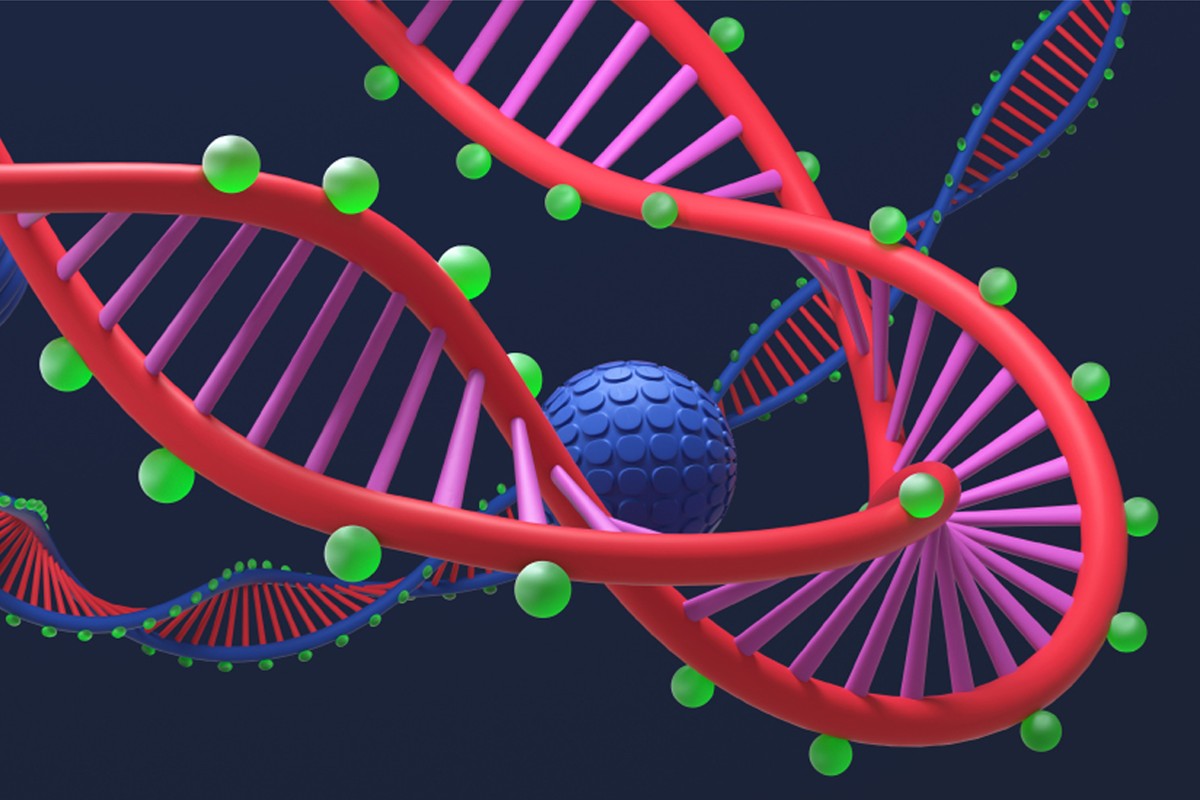
Methylation is a biochemical process that plays a crucial role in various bodily functions. But what exactly is it? Methylation involves adding a methyl group (one carbon atom and three hydrogen atoms) to DNA, proteins, or other molecules. This process affects gene expression, detoxification, and even mood regulation. Methylation is essential for turning genes on or off, repairing DNA, and processing chemicals in the body. Without proper methylation, our bodies can't function optimally. Factors like diet, lifestyle, and genetics can influence methylation efficiency. Understanding methylation can help us grasp how our bodies work and how to maintain better health. Ready to dive into 25 fascinating facts about methylation? Let's get started!
What is Methylation?
Methylation is a biochemical process crucial for many bodily functions. It involves the transfer of a methyl group (one carbon atom and three hydrogen atoms) to various molecules, including DNA, proteins, and other compounds. This process impacts everything from gene expression to detoxification.
-
Methylation occurs in every cell: Every cell in the body uses methylation to function properly. It's a fundamental process for maintaining cellular health.
-
DNA methylation regulates gene expression: By adding methyl groups to DNA, cells can turn genes on or off. This regulation is essential for normal development and cellular differentiation.
-
Methylation affects neurotransmitter production: Methylation helps produce neurotransmitters like serotonin, dopamine, and norepinephrine, which are vital for mood regulation and cognitive function.
-
Detoxification relies on methylation: The liver uses methylation to detoxify harmful substances, including heavy metals and environmental toxins.
-
Methylation impacts cardiovascular health: Proper methylation helps maintain healthy homocysteine levels, reducing the risk of cardiovascular diseases.
Importance of Methylation in Health
Methylation plays a significant role in various health aspects, from mental well-being to physical health. Understanding its importance can help in managing and preventing health issues.
-
Methylation and mental health: Imbalances in methylation can lead to mental health disorders like depression, anxiety, and schizophrenia.
-
Methylation and aging: DNA methylation patterns change with age, influencing the aging process and the development of age-related diseases.
-
Methylation and cancer: Abnormal methylation patterns can lead to cancer by silencing tumor suppressor genes or activating oncogenes.
-
Methylation and immune function: Proper methylation is essential for a healthy immune response, helping the body fight infections and inflammation.
-
Methylation and energy production: Methylation is involved in the production of ATP, the energy currency of cells, ensuring efficient energy metabolism.
Nutrients Involved in Methylation
Certain nutrients are vital for supporting the methylation process. A balanced diet can help maintain optimal methylation and overall health.
-
Folate: Folate, or vitamin B9, is crucial for methylation. It helps convert homocysteine to methionine, a key step in the methylation cycle.
-
Vitamin B12: This vitamin works with folate to support methylation and is essential for red blood cell formation and neurological function.
-
Vitamin B6: Vitamin B6 is involved in the conversion of homocysteine to cysteine, another important step in the methylation process.
-
Betaine: Found in foods like beets and spinach, betaine supports methylation by donating methyl groups.
-
Choline: Choline is a precursor to betaine and plays a role in liver function, brain development, and muscle movement.
Factors Affecting Methylation
Several factors can influence methylation, either positively or negatively. Understanding these factors can help in maintaining proper methylation.
-
Genetics: Genetic variations can affect methylation efficiency, leading to health issues if not managed properly.
-
Diet: A diet lacking in essential nutrients can impair methylation, while a nutrient-rich diet can support it.
-
Stress: Chronic stress can disrupt methylation, affecting mental and physical health.
-
Environmental toxins: Exposure to toxins like heavy metals and pesticides can interfere with methylation.
-
Medications: Some medications can impact methylation, either by depleting essential nutrients or directly affecting the methylation process.
How to Support Methylation
Supporting methylation involves lifestyle and dietary choices that promote optimal function. Here are some ways to enhance methylation.
-
Eat a balanced diet: Include foods rich in folate, B vitamins, betaine, and choline to support methylation.
-
Manage stress: Practice stress-reducing techniques like meditation, exercise, and adequate sleep to maintain healthy methylation.
-
Avoid toxins: Reduce exposure to environmental toxins by choosing organic foods, using natural cleaning products, and avoiding smoking.
-
Supplement wisely: If necessary, consider supplements like methylfolate, B12, and betaine to support methylation, but consult a healthcare provider first.
-
Regular check-ups: Regular health check-ups can help monitor methylation-related markers and address any imbalances early.
The Power of Methylation
Methylation plays a crucial role in our bodies, affecting everything from DNA repair to detoxification. This process, involving the transfer of methyl groups, is essential for maintaining health. Disruptions in methylation can lead to various health issues, including cardiovascular diseases, mental health disorders, and even cancer.
Understanding methylation helps in developing better treatments and preventive measures. Nutrients like folate, vitamin B12, and SAM-e support proper methylation. Genetic factors also influence how well our bodies methylate, making personalized healthcare important.
By paying attention to diet, lifestyle, and genetic predispositions, we can support our methylation processes and overall well-being. Methylation isn't just a biochemical process; it's a cornerstone of health. So, next time you think about health, remember the tiny methyl groups working tirelessly to keep you in balance.
Was this page helpful?
Our commitment to delivering trustworthy and engaging content is at the heart of what we do. Each fact on our site is contributed by real users like you, bringing a wealth of diverse insights and information. To ensure the highest standards of accuracy and reliability, our dedicated editors meticulously review each submission. This process guarantees that the facts we share are not only fascinating but also credible. Trust in our commitment to quality and authenticity as you explore and learn with us.
